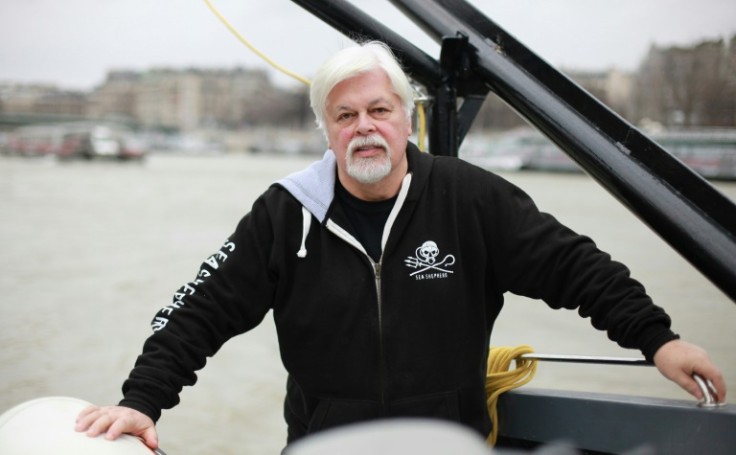New Greenland Hearing For Anti-whaling Activist Watson

A Greenland court will decide Wednesday whether to keep anti-whaling activist Paul Watson in custody pending a decision on his extradition to Japan, where he is wanted over a clash with whalers.
For the third time since the 73-year-old US-Canadian campaigner's arrest in late July in Nuuk, the capital of the Danish autonomous territory, "the prosecution has asked for an extension of the detention", the prosecutor in charge of the case, Mariam Khalil, told AFP in an email.
Watson's supporters expect the court to grant the prosecution's request, as the legal review of Japan's extradition request drags on.
"I still think he should be released," Watson's lawyer, Julie Stage, told AFP.
"At some point, you'll reach the problem of proportionality," she said, referring to how long the court can hold him in detention considering the crime of which he is accused.
The court hearing, which is expected to last around 90 minutes, "risks being a repetition of the past two hearings in Nuuk, a travesty of justice", said the head of Sea Shepherd France, Lamya Essemlali.
Watson, who featured in the reality TV series "Whale Wars", founded Sea Shepherd and the Captain Paul Watson Foundation (CPWF), and is known for radical tactics including confrontations with whaling ships at sea.
He was arrested on July 21 when his ship, the John Paul DeJoria, docked to refuel in Nuuk on its way to "intercept" a new Japanese whaling factory vessel in the North Pacific, according to the CPWF.
He was detained on a 2012 Japanese arrest warrant, which accuses him of causing damage to a whaling ship in 2010 and injuring a Japanese crew member with a stink bomb intended to disrupt the whalers' activities.
In mid-September, Watson's lawyers contacted the UN special rapporteur on environmental defenders, claiming that he risked "being subjected to inhumane treatment... in Japanese prisons".
The lawyers have argued that Japan's extradition request is based on "false" claims, and insist they have video footage proving the crew member was not on deck when the stink bomb was thrown.
But the Nuuk court has refused to view the footage, arguing that the hearings are solely about his detention and not the question of guilt.
The lawyers have also argued that the crime is not punishable by a prison sentence under Greenlandic law, and Watson should therefore not be extradited.
Watson and his lawyers are eagerly awaiting a decision from Denmark's justice ministry on whether it will approve Japan's extradition request.
The ministry told AFP that the legal review was "underway", but provided no date for when a decision could be expected.
"The process is slow. The Greenlandic police is doing its investigation, which it then has to submit to the prosecutor general, who then makes a recommendation to the minister," Stage explained.
"We want the Danish minister to make a decision. At the moment they're just letting him rot in prison, it's really a problem," said Essemlali.
She said Watson's prison conditions have worsened.
"They have cut almost all his contact with the outside world. He's only allowed to speak to his wife for 10 minutes a week," she said.
More than 100,000 people have signed a petition calling for the release of Watson, who is controversial in environmental circles due to his radical tactics.
On the political side, France, where Watson lived until his arrest, has urged Copenhagen not to extradite him.
From his cell at the Nuuk prison, a modern grey building overlooking the sea, Watson remains determined to continue his fight to save the whales.
"If they think it prevents our opposition, I've just changed ship. My ship right now is Prison Nuuk," he told AFP in an interview in late August.
The Japanese "want to set an example that you don't mess around with their whaling", he said.

© Copyright AFP 2024. All rights reserved.




















